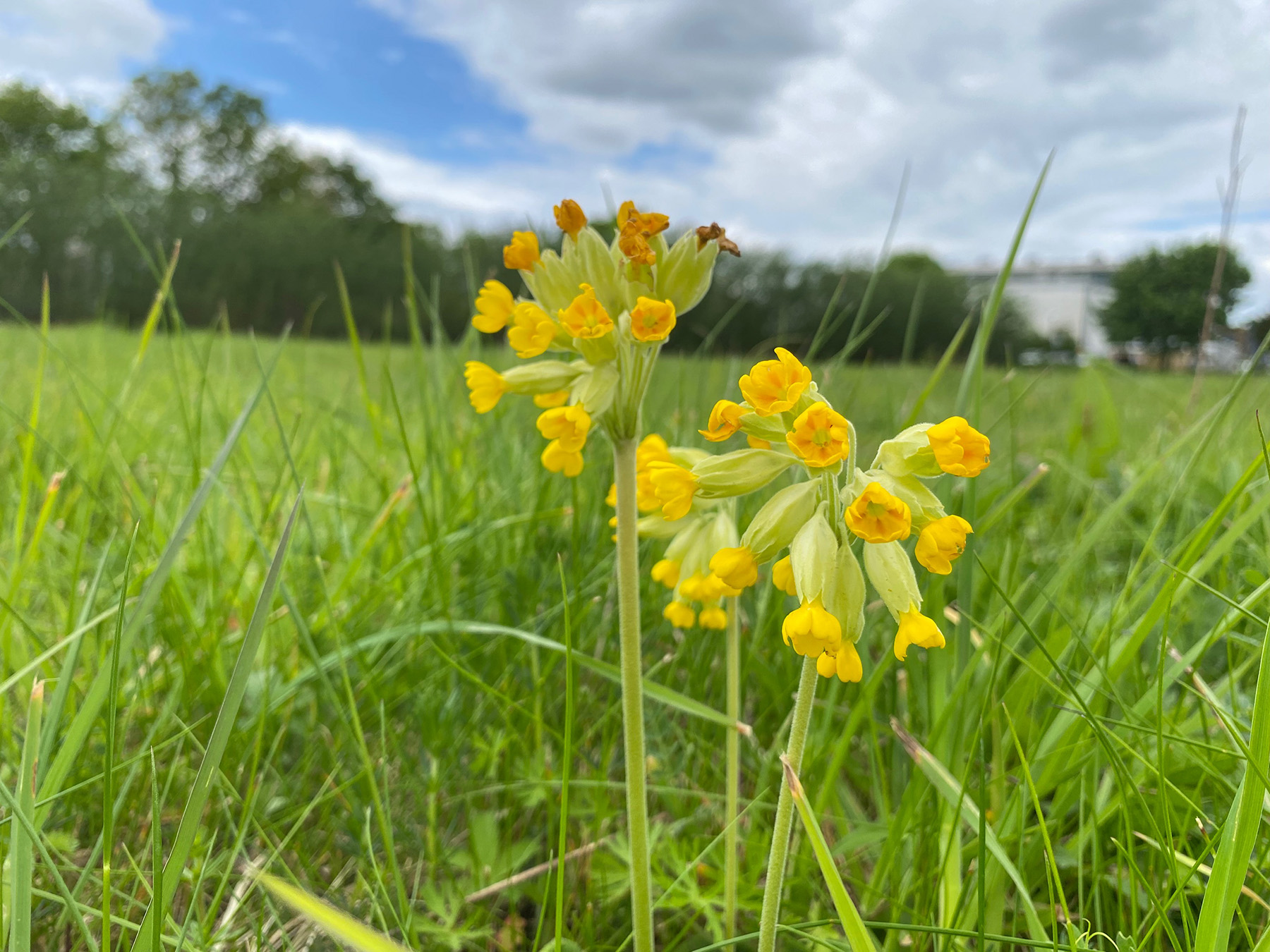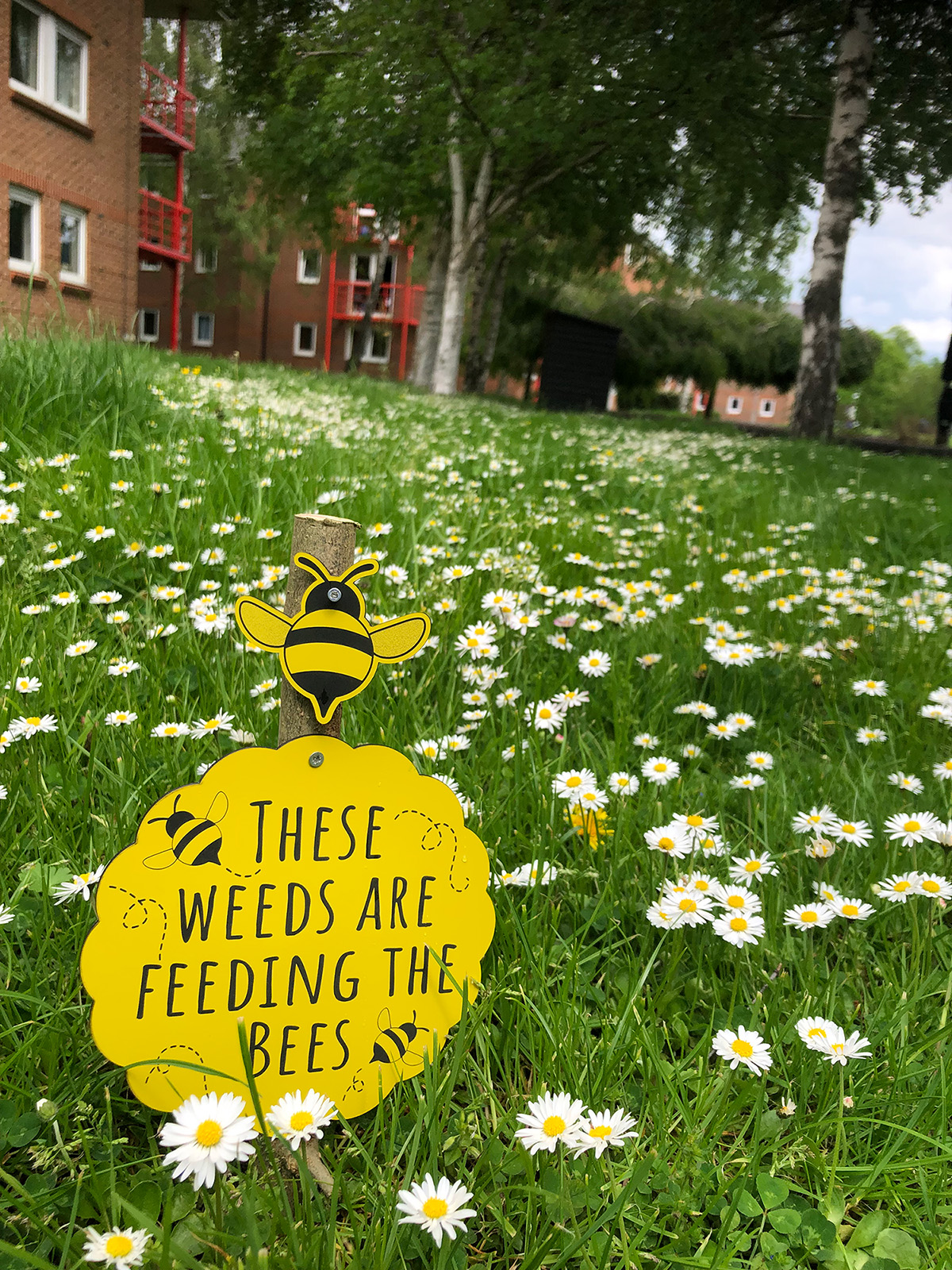
Have you noticed that our campuses are now full of wildflowers? Check out this photo we took in Avery Hill—the yellow flower is called cowslip, with tube-like, egg-yolk-yellow flowers clustered together. The name ‘cowslip’ actually means ‘cow-slop’ (cowpat), associated with its habitat in the meadows and fields.
New Mowing Regime

To reduce disturbance to wildlife and increase biodiversity in the campus, the university has reduced the cutting regime in Avery Hill in summer to allow more flowers to grow, which are vital for insects such as butterflies and bees. We are also now leaving a buffer area while strimming to minimise tree damage.
Working with the campus team and Sodexo, we will ensure a balance between biodiversity, amenity space and recreational needs. The project will be rolled out across Greenwich and Medway in the future.
One of our eagle-eyed Medway staff has even identified orchids growing in one of our lawn areas there.
We are really proud that the work our staff and IFM partners have done to improve the biodiversity of our campus is clearly delivering such amazing results. Not only are we identifying rare plants around our campuses, we have much more colour, forage and habitat for animal species. By simply reducing mowing frequency we are bringing much more life to our campuses and this is something that can be easily done at home too. - David Jackson, Sustainability Manager.
Join the movement
You can contribute to attracting more wildlife too — join us in the No Mow May movement, a Plantlife campaign encouraging people not to mow their lawns until the end of May. Leaving an area with long grass and wildflowers provides food and habitats for pollinators, improving overall biodiversity.

